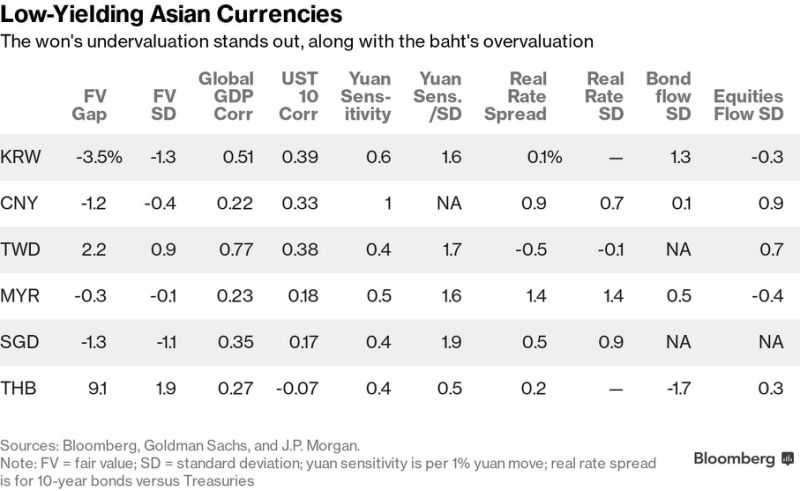Baht Seen Defying Bank of Thailand’s Attempts to Halt Gains
Baht bulls are on guard as they gauge the Thai central bank’s willingness to take more action to curb gains in the currency.
Measures may include interest-rate cuts and stronger verbal intervention, according to Krung Thai Bank Pcl and Tisco Financial Group Pcl, though the top forecasters for the currency predict the baht will shrug off these moves and climb again in 2020. A Thai monetary policy committee member signaled Monday the central bank will seek to defend the level of 30 to the dollar.
“The central bank’s tools on the baht now are only verbal intervention and a rate cut,” said Jitipol Puksamatanan, Bangkok-based chief strategist at Krung Thai Bank. The No. 1 forecaster for the baht last quarter predicts a 25 basis-point cut in the key rate this year.
The baht’s 9% surge against the dollar last year is posing a headache to the Bank of Thailand, which has already adopted a string of measures including reducing the key rate to a record low and easing rules on outflows. The central bank remains concerned about the currency’s appreciation and is ready to consider additional measures, according to minutes of its Dec. 18 rate meeting released last week.
The central bank declined to respond when asked for a comment.
Policy makers cut the benchmark rate twice in 2019. The stronger currency is hurting the economic pillars of exports and tourism, at a time when growth remains lackluster.
“The central bank still has room to cut its key interest rate further to help stem the baht’s gain and spur the economy” said Komsorn Prakobphol, a senior investment strategist at Tisco Financial in Bangkok.
30-Per-Dollar
The baht breached the psychologically significant 30-per-dollar level last week for the first time since 2013. The Thai currency has since weakened to trade at about 30.15 per dollar as of 9:08 a.m. in Bangkok on Tuesday.
The Bank of Thailand is “taking care” of the baht and will aim to prevent the currency from strengthening past 30, Kanit Sangsubhan, a member of the monetary policy committee, said on Monday.
It might prove to be a tough battle with Krung Thai and Oversea-Chinese Banking Corp. among those predicting the currency will post another strong year. Krung Thai predicts the baht will end the year at 28.7 per dollar, as the nation’s hefty current-account surplus and sizable pile of foreign reserves attract global funds.
“Unless we see some exceptionally strong measures from the BOT, the bias is for the dollar/baht to inch lower,” said Terence Wu, a currency strategist at OCBC, which was the second best forecaster for the baht last quarter.
The baht will climb to 29.44 per dollar by the end of the year, Wu, who is based in Singapore, forecast.
Expensive?
The strength of the baht may ultimately be undone not by domestic central bank action, but by global forces.
The baht is the most vulnerable low-yielding currency after four years of gains which have taken its valuations to extreme levels, based on a Bloomberg study. It also isn’t expected to benefit as handsomely as its Asian peers from a rebound in global growth.




